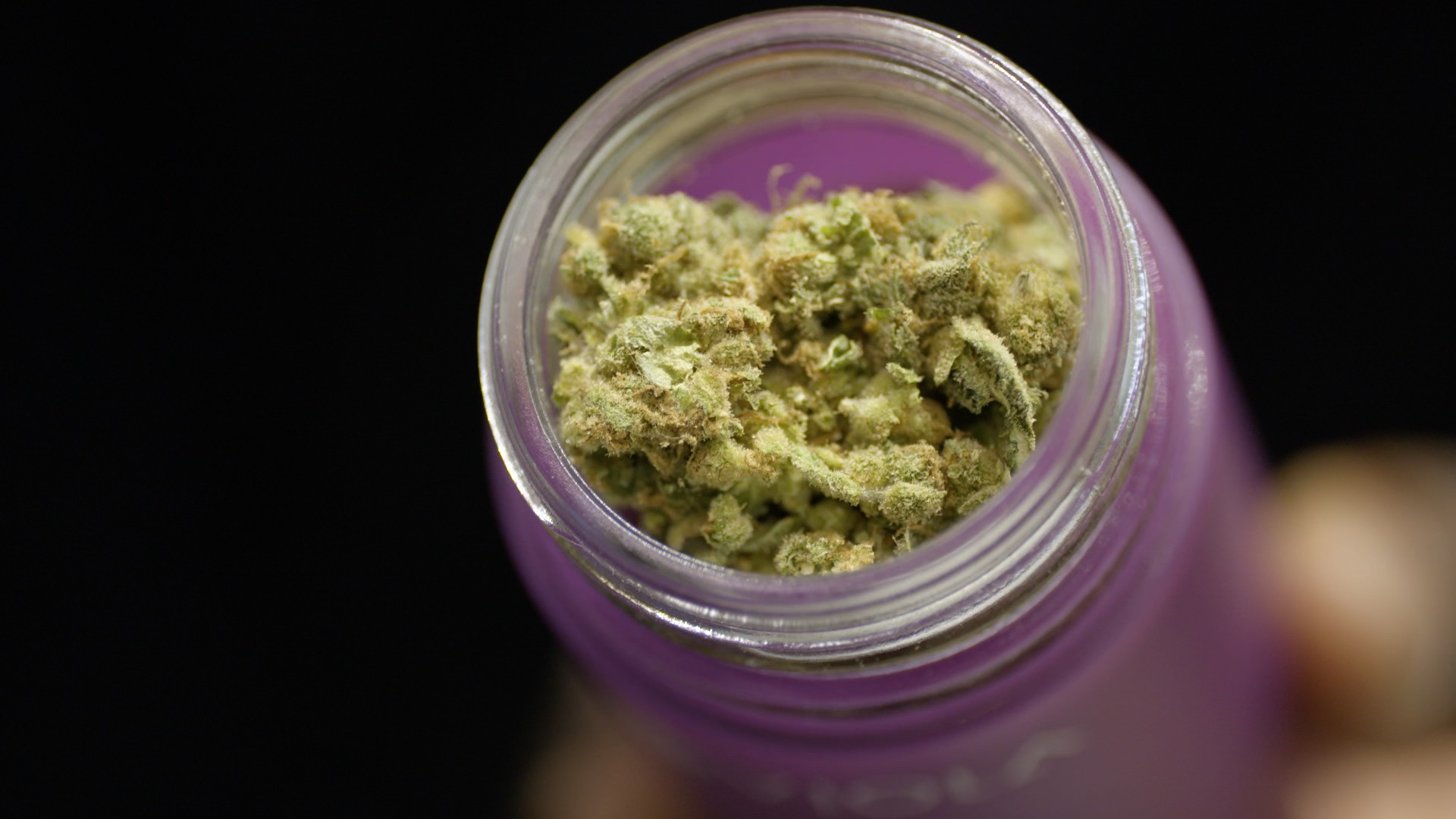Last November, after US senator Robert Menendez's corruption case ended in a mistrial, he walked out of a federal courthouse in Newark, New Jersey, and, with faint tears streaming down his cheeks, thanked everyone who had stood by him.Then he addressed the unfortunate souls who had not."To those who were digging my political grave so they could jump into my seat," he said to the crowd, "I know who you are, and I won’t forget you."
Advertisement

It sounded like the first stab at writing Maximus Decimus Meridius's monologue toward the climax of Gladiator ("and I will have my vengeance, in this life or the next"), or the ravings of Liam Neeson as he tries to rescue whatever fictional relative of his has just been kidnapped. Really, though, it was the kind of not so subtle, off-the-cuff threat we've come to expect from powerful people in my home state. (Who could forget Governor Chris Christie's very caring admonition to "get the hell off the beach!" as Hurricane Irene was hurtling toward the Jersey Shore?)Menendez, a fierce fighter who steadfastly maintained his innocence, had just walked away scot-free from accusations of bribery, conspiracy, and fraud. More specifically, he'd been accused of doing political favors for his friend Salomon Melgen, a wealthy Florida doctor, in exchange for trips on his private plane to an elite resort in the Dominican Republic and fancy hotel rooms in Paris, as well as campaign donations. There was nothing wrong with any of this, Menendez insisted, because they were just two friends who believed in each other's causes—and why would he not accept his good pal's completely unrelated generosity?On the surface, that might sound like a far-fetched excuse. But a politician transparently trading services with a wealthy pal may not have seemed all that crazy in Jersey."A lot of voters saw the mistrial as indicative of the fact that the Justice Department couldn't prove their case," said Brigid Harrison, a professor of political science and law at Montclair State University. "I think, too, that a lot of people were, like, what did he do differently than any other US senator? He accepted money and advocated for somebody who would give him contributions."
Advertisement
As voters went to the polls Tuesday, it appeared as if Menendez would prevail against Republican challenger Bob Hugin, a pharmaceutical executive who had trouble distancing himself from Donald Trump. To be sure, it was an "all-hands-on deck scramble" for Democrats this past month, as the New York Times reported, to make sure they didn't lose a Jersey Senate seat for the first time in 46 years. Among other things, the state's storied Democratic machine appeared to spring back to life in time to save another flawed candidate of questionable integrity.But the Mendendez campaign also showed just how tolerant Jersey residents can be of shady characters and undesirables—and the polarization of the Trump era that can make voting for Republicans almost unfathomable to some suburbanites."This is a typical New Jersey Election Day ritual," said Ross Baker, a professor at Rutgers University and an expert on American politics. "When they sense that some important Democrat is in peril, they make sure the people who work in the county offices, and who drive the snowplows, are going to be at the polls."The arguments for Menendez were not particularly flattering, even if the dude took whatever help he could get. In the Star-Ledger this past Sunday, Drew Sheneman wrote a short op-ed stating that, even though Menendez was "a terrible candidate" who made "dubious moral decisions that he absolutely knew were wrong," the citizens of New Jersey should still vote for him on Tuesday. (Talk about an endorsement.) Likewise, the newspaper's editorial board ran a piece with the headline: "Choke it down, and vote for Menendez." The journalist Alex Pareene suggested in a tweet that Menendez be forced to resign immediately after his victory, and New York's David Freedlander recently asked if Menendez was "testing New Jersey's tolerance for sleaze."
Advertisement
It was something of a mad dash to the finish in a race that cost Bob Hugin around $36 million of his own money for commercials that mostly just hammered home how his opponent might have engaged in some sketchy dealings. Menendez's team, meanwhile, put most of its attention—and significantly less money—on portraying Hugin as a Trump loyalist, even if he disputed the charge.In the end, "[Menendez will] probably win because there's a narrative that's now been broadly accepted that, although it might not be totally true, a vote for Bob Hugin is a vote for Donald Trump," Baker told me. "As for voting for Menendez, Jersey Democrats have concluded that a vote is not a love letter—it's a chess move. What you're going to see, I think, are a lot of New Jersey Democrats holding their noses with their right hands, and pulling the Democratic lever with their left."The candidates' sole debate at the end of October emphasized these dueling narratives: that Menendez was corrupt and did not deserve a third term, and that Hugin, a money-grubbing businessman whose company raised the price of a cancer drug, would always stand with the White House. Before they hit the stage, Hugin launched yet another ad in which he highlighted unsubstantiated claims that Menendez had hired underage prostitutes. (The senator categorically denied those allegations.)"I think Hugin [has done] a reasonably effective job of reminding voters that Menendez had these legal and ethical problems," said Micah Rasmussen, the director of the Rebovich Institute for New Jersey Politics at Rider University and former governor Jim McGreevey's press secretary. "But I don't think he's been able to do much beyond that. I don't think he's convinced anyone why he's a better alternative, or that he would shed his past support of Trump and be a check and balance on the president's power."
Advertisement
"I think this election is very much about Trump—not just for Menendez, but for a lot of the congressional candidates as well," echoed Matthew Hale, a professor of political science and public affairs at Seton Hall University. "People in New Jersey do not want to give Trump anything."Most of all, the battle between Menendez and Hugin brought into sharp relief New Jersey's particular breed of politics: intense practicality—or what Hale called a politics of "transactions," a bit of unvarnished realism that might seem pretty alien elsewhere. Ultimately, it's less a question of who's right than who's plausibly worse."What's interesting is that everyone in New Jersey shares the same basic politics," Hale said. "They like centrist, middle-of-the-road Democrats or Republicans. They don't like extremists. So any association with someone who's an extremist is poison, and it's a lot easier to associate Bob Hugin with 'extremist Donald Trump' than it is Bob Menendez with, like, 'extremist Nancy Pelosi.' So both of those parts of New Jersey—the commuter, say, who lives in Franklin Lakes in a beautiful four-bedroom house and the one who lives on a four-floor walk-up in Jersey City—their politics are often very similar."To tell somebody you're from New Jersey is to deal incessantly with references to Tony Soprano collecting the newspaper in his bathrobe, the Situation's impending prison sentence, and the litany of politicians who have fallen from grace. In other words: An incumbent being dirty isn't an unfamiliar notion—and it's not the stuff of bona fide scandal. There have been versions of Menendez—and his moral lapses—time and time again. It's a cliché, but it's true: The Garden State has a reputation for crooked, or at least grimy, public officials. It's such a well-known joke that a man with the last name "Crook" is running for Congress in part by comically subverting the connotation of his surname. "It makes people laugh," Robert Crook told the New York Post. "People are so sick of politics these days—and it gets their attention." (Naturally, of 1,200 signs he's planted around his district, he said, about 400 of them had been stolen.)
Advertisement
It's also serious. In Newark, a federal jury convicted the former mayor, Sharpe James, for fraud after he conspired to sell city-owned properties to his romantic partner, who flipped them for hundreds of thousands of dollars. A Camden Democratic power broker, George Norcross, was secretly recorded discussing patronage jobs and issuing threats over a decade ago, and is still somehow portrayed in the press as a normal businessman. Perhaps most notably, in our contemporary consciousness: For eight years, from 2010 to 2018, there was Chris Christie, the walking cartoon of the state's brash attitude and in-your-face ethos. He rode in a police helicopter to his son's baseball game; he said the teachers union deserved "a punch in the face"; he screamed at man for criticizing his policies on a Jersey Shore boardwalk, armed with an ice cream cone. And, of course, there's the time he may or may not have had his aides shut down the George Washington Bridge for political payback on a small-town mayor who declined to endorse him.The sleaze, in the end, hasn't washed off. Not even close; rather, it's caked on to such a point that it might be too familiar to wipe away. New Jersey residents—poor and rich, Democrat and Republican—possess the gift of ignoring gross flaws. What's the big deal? Menendez, to them, still knows what he's talking about when it comes to core issues like middle-class taxes and affordable healthcare."For New Jersey voters, there is this very practical question that they always ask themselves—and maybe it's because we really have seen and heard it all before," Rasmussen told me. "We're able to ask the next necessary question. Which is, in regards to Menendez: How much importance should we place on these particular problems? In another state, would people be willing to look passed the ethics issues? Maybe not."Sign up for our newsletter to get the best of VICE delivered to your inbox daily.Follow Alex Norcia on Twitter.
